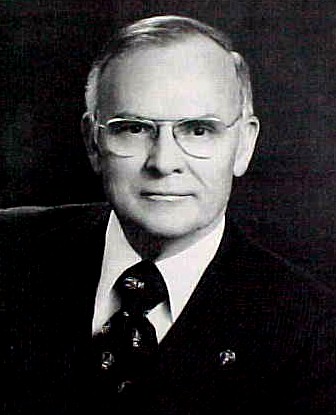|
Certainly, Gentlemen, it ought to be
the happiness and glory of a representative to live in the strictest union, the
closest correspondence, and the most unreserved communication with his
constituents.
Their wishes ought to have a great
weight with him, their opinions high respect; their business unmerited
attention.
It is his duty to sacrifice his repose,
his pleasure, his satisfactions, to theirs, and above all, ever, and in all
cases, to prefer their interest to his own.
But his unbiased opinion, his mature
judgment, his enlightened conscience, he ought not to sacrifice to you, to any
man, or to any set of men living.
These he does not derive from your
pleasure, no nor from the law and the Constitution. They are a trust from
Providence, for the abuse of which he is deeply answerable.
Your representative owes you, not
his industry only, but his judgment; and he betrays, instead of serving you, if
he sacrifices it to your opinion.
~~~~~~~~~~~
Edmund Burke in:
Orations and Essays
|
Authoring and sponsoring of the Freedom
of Information Act, opening government records to access by the public
and the press.
Authoring and advocacy of the Consumer Product Safety Act which established
the Consumer Product Safety Commission, a new federal agency, with broad
authority to protect American consumers against unsafe products.
Congressman Moss was the primary author, along with Senator Warren G.
Magnuson (D-WA), of the Federal Trade Commission Improvements Act (the
Magnuson-Moss Act) which gave the Federal Trade Commission authority to
bring actions on behalf of the defrauded consumers, go directly to court
to enforce consumer rights against deceptive practices and set trade regulation
rules establishing fair conduct in businesses affecting commerce.
Congressman Moss was the author of the Securities Amendments of 1975
which opened the securities industry to the National Electronic Market
System (NASDAQ) ended restrictive practices (such as mandatory fixed commission
rates) and limited the monopoly power of the New York Stock Exchange.
He was also the author of other significant consumer legislation, such
as the Motor Vehicle Information and Cost Savings Act (stronger bumpers,
tamper proof odometers); the Toy Safety Act (safety standards for children’s
toys); the Poison Packaging Prevention Act (safety packaging on drugs for
household use); the Toxic Substances Control Act (one of the first environmental
protection laws).
In addition to his legislative accomplishments, Congressman Moss is
considered the father of modern legislative oversight. Moss chaired the
largest Oversight Committee in the House of Representatives for six years.
The Committee considered subjects such as the World Uranium Cartel, a FBI
foreign security surveillance, government contracting abuses, the adequacy
of Generally Accepted Accounting Principles, unnecessary surgery, natural
gas shortages and pricing, automobile passive restraint systems, the effectiveness
of the regulation of pesticides and amendments to the Foreign Corrupt Practices
Act relating to commercial bribery of foreign officials by domestic companies.
These Oversight hearings generally resulted in policy or programmatic changes
by government and industry. |
 John
Emerson Moss was elected to the California Sate Assembly November 2, 1948 and
reelected November 7, 1950. He served as the assistant Democratic floor leader
of the assembly during the 1949-52 sessions. First elected to the United States
House of Representatives on November 4, 1952, he continued to serve the people
of Sacramento until his retirement in 1978. He was nominated by both the
Democratic and Republican parties in 1958 and ran unopposed in 1960. He was
subsequently reelected to the 88th, 89th, 90th, 91st, 92nd 93rd, 94th and 95th
Congresses; Congressman Moss was never defeated in any election for public
office.
John
Emerson Moss was elected to the California Sate Assembly November 2, 1948 and
reelected November 7, 1950. He served as the assistant Democratic floor leader
of the assembly during the 1949-52 sessions. First elected to the United States
House of Representatives on November 4, 1952, he continued to serve the people
of Sacramento until his retirement in 1978. He was nominated by both the
Democratic and Republican parties in 1958 and ran unopposed in 1960. He was
subsequently reelected to the 88th, 89th, 90th, 91st, 92nd 93rd, 94th and 95th
Congresses; Congressman Moss was never defeated in any election for public
office.